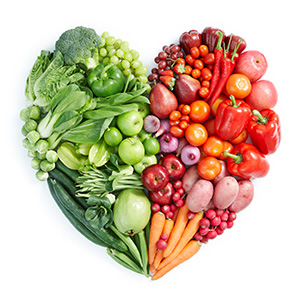
Importance of Antioxidants, Phytochemicals and Fiber for Optimal Health
A healthy diet is a cornerstone of good health, which of course makes perfect sense. Also, medical journals report connections between diet and cancer. Donald L. Hayes, CP summarizes some of the basic research that has been done. I have made bullets of the main points of his article. If you would like to read the whole thing, or see the original sources, go to this site: https://bit.ly/2lA3uKU
- In 1998, the University of Naples, Italy studied 70 to 100-year-olds and found that those who lived the longest and were the healthiest ate a lot more fruit and vegetables.
- Men and women whose diets are high in fruits and vegetables were shown to have lower rates of angina, arthritis, asthma, bronchitis, cirrhosis, gallstones, heart attack, kidney stones and peptic ulcers. Epidemiology, March 1998, Vol. 9, No 2, p 208.
- Studies published in the UC Davis Health Journal states that, “Spirulina increased antibody responses and the activity of natural killer cells, which destroy infected and cancerous cells in the body.”
- Chlorella is by far the best and most powerful of the super foods that provide your body with the proper nutrition to heal itself.
- “The leaves of the cereal grasses provide the nearest thing this planet offers to the perfect food. For reasons of palatability, higher nutrient content, and favorable harvesting features, green barley stands out as the best among these,” according to Dr. Hagiwara, Professor of Toxicology at UC Davis.
- The International Journal of Cancer reported that high consumption of green leafy vegetables containing lutein and zeaxanthin, cancer protective agents, accounted for the low incidence of lung cancer in Fiji where 80% of the men are smokers.
- According to the International Journal of Cancer, food items most strongly related to decreased risk for ovarian cancer are raw carrots and tomato sauce. Consumption of fruits, vegetables, food items and supplements high in carotene and lycopene reduce the risk of ovarian cancer.
- According to the Journal of the National Cancer Institute, cruciferous vegetables, such as broccoli, cauliflower, cabbage and brussel sprouts, substantially lower the risk of prostate cancer in men. Numerous studies also suggest a protective role in uterine, cervical and breast cancer in women as well.
- Super rich in the anthocyanin bioflavinoid group of phytonutrients, these elements are found abundantly in berries, and some of the richest sources are grape seed and pine bark extracts. These are powerful antioxidants that are significantly more active than Vitamins C and E. Grape skin extracts inhibit the initiation and promotion of tumors, and cause precancerous cells to return to normal, according to the Journal of Clinical Oncology.
- Studies conducted at the Hollings Cancer Institute found that cranberries, raspberries and tart cherries are the richest fruit source of ellagic acid, a naturally occurring plant phenolic flavonoid phytonutrient. This chemical is a potent anticarcinogenic and may be the most potent way to prevent cancer!
- The benefits of green tea flavonoid catechins for the heart are greater than that of red wine, without the alcohol! There is a 10% increase in breast cancer for every alcoholic beverage consumed on a daily basis, according to an article in JAMA.
- Fruit and vegetable extracts, especially from dense varieties, are highly concentrated phytonutrient super food supplements. Findings reported in the 38th annual meeting of the American Society of Cell Biology indicate that these supplements enhance “multiple immune functions…especially for people whose immune functions have been diminished.”
- Insoluble fibers are the most responsible for lowering cholesterol, and the most effective cholesterol lowering soluble fiber is oat beta-glucan. The FDA has recently approved claims for oat beta-glucan stating that this is the primary component responsible for the total and LDL blood cholesterol lowering effects.
“We recommend trying lecithin for reducing risk of coronary heart disease, fatty liver, and to improve mild memory impairment.” D.W. Johnson, Ph.D., D.J. Mokler, Ph.D., Dept. of Physiology and Pharmacology, College of Osteopathic Medicine, University of England.
Curcuma longa (turmeric) extract was given to patients with previously elevated levels of fibrinogen, a biomarker important to cardiovascular risk. After only 15 days, fibrinogen dropped like a rock in all subjects, according to the research of Ward Dean, M.D., Fibrinogen: Biomarker of Aging and Important Cardiovascular Risk.
